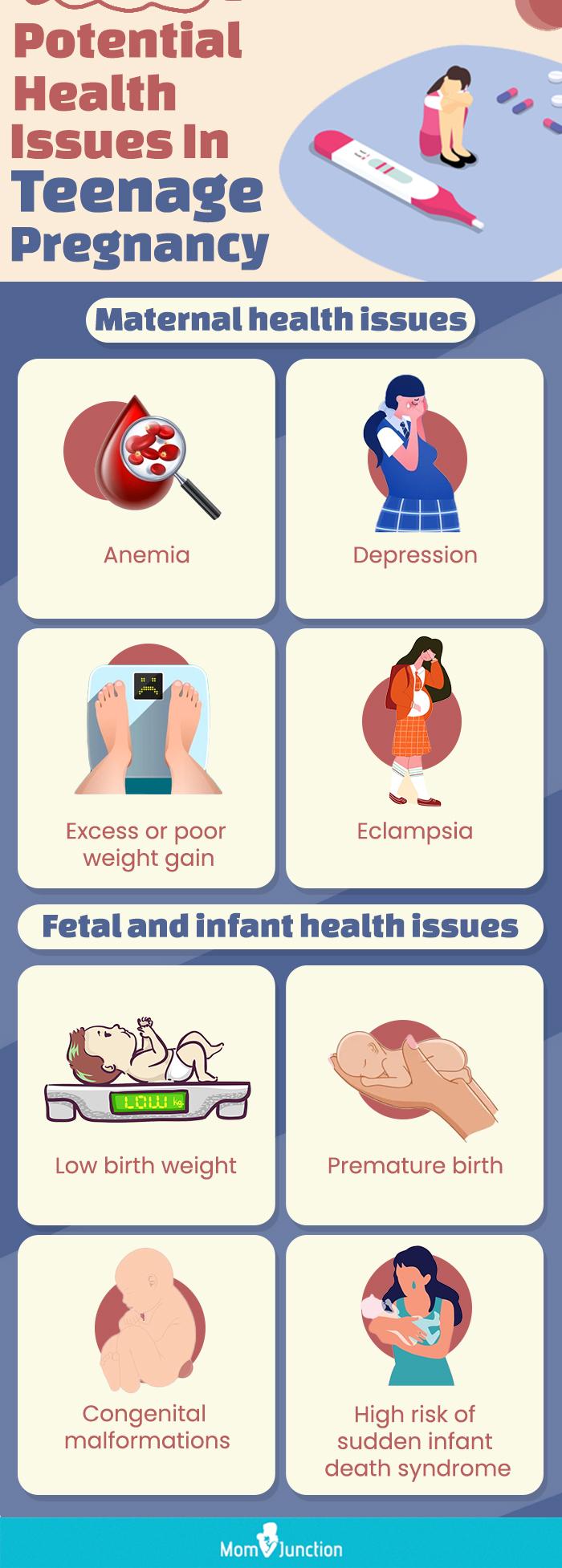
The Emotional Impact of Teen Pregnancy on the Infant
Teen pregnancy is a complex and challenging issue that can have profound effects on both the mother and the child. While the physical risks of teen pregnancy are well-documented, the emotional impact on the infant is often overlooked. This article will explore the emotional consequences of teen pregnancy on the baby, examining the potential risks and protective factors that can influence the child’s well-being.
Attachment and Bonding
Attachment is a critical aspect of infant development, referring to the emotional bond that forms between a child and their primary caregivers. In the case of teen pregnancy, the mother may face unique challenges in establishing a secure attachment with her baby. Factors such as immaturity, lack of experience, and social isolation can interfere with the mother’s ability to provide consistent and responsive care.
Research suggests that infants born to teen mothers may be more likely to experience insecure attachment patterns, characterized by anxiety, avoidance, or a combination of both. Insecure attachment can have long-term consequences for the child’s emotional and social development, increasing the risk of problems with relationships, self-esteem, and mental health.
Cognitive and Behavioral Outcomes
Teen pregnancy can also impact the infant’s cognitive and behavioral development. Studies have shown that infants born to teen mothers may have lower IQ scores and perform less well on standardized tests compared to children born to older mothers. They may also be more likely to experience developmental delays, such as speech and language problems.
In terms of behavior, infants born to teen mothers may exhibit more aggressive and impulsive behaviors, as well as difficulties with attention and self-regulation. These behavioral issues can interfere with the child’s ability to succeed in school and social settings.
Emotional Regulation
Emotional regulation refers to the ability to manage and express emotions in a healthy way. Infants born to teen mothers may have difficulty regulating their emotions, leading to outbursts, tantrums, and other forms of emotional dysregulation. This can be challenging for both the child and their caregivers, and can contribute to problems with behavior and relationships.
Risk and Protective Factors
While teen pregnancy can pose significant emotional risks to the infant, there are also protective factors that can mitigate these effects. These factors include:
- Maternal age: The older the teen mother, the lower the risk of negative outcomes for the child.
- Social support: Having a strong support system of family, friends, and professionals can help the teen mother provide a stable and nurturing environment for her baby.
- Education and employment: Teen mothers who have access to education and employment opportunities are more likely to be able to provide for their children’s emotional and material needs.
- Prenatal care: Regular prenatal care can help to ensure the health of both the mother and the baby, reducing the risk of developmental problems.
Interventions and Support
Given the potential emotional risks of teen pregnancy on the infant, it is crucial to provide support and interventions to mitigate these effects. These interventions may include:
- Parenting education: Programs that teach teen mothers about child development, attachment, and parenting skills can help them to establish a secure bond with their babies and promote healthy emotional development.
- Mental health services: Teen mothers may benefit from mental health services to address their own emotional needs and improve their ability to care for their children.
- Family therapy: Family therapy can help to improve communication and relationships within the family, creating a more supportive environment for the infant.
- Early childhood education: Early childhood education programs can provide infants born to teen mothers with a stimulating and nurturing environment that supports their cognitive, social, and emotional development.
Conclusion
Teen pregnancy can have significant emotional consequences for the infant, including challenges with attachment, cognitive development, behavioral regulation, and emotional regulation. However, there are also protective factors that can mitigate these effects, and interventions and support can help to promote the well-being of both the mother and the child. By understanding the emotional impact of teen pregnancy and providing appropriate support, we can help to ensure that infants born to teen mothers have the opportunity to thrive and reach their full potential.